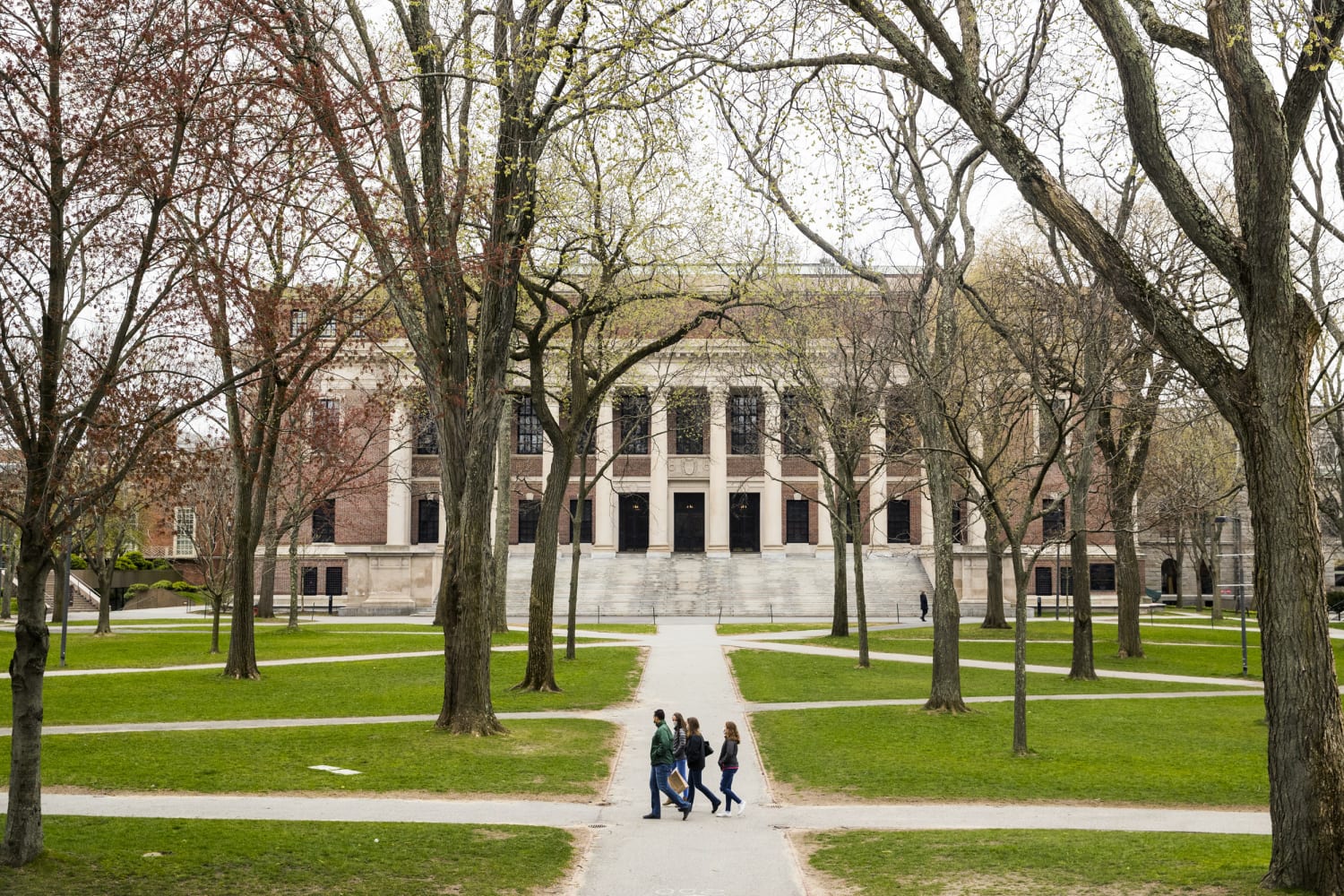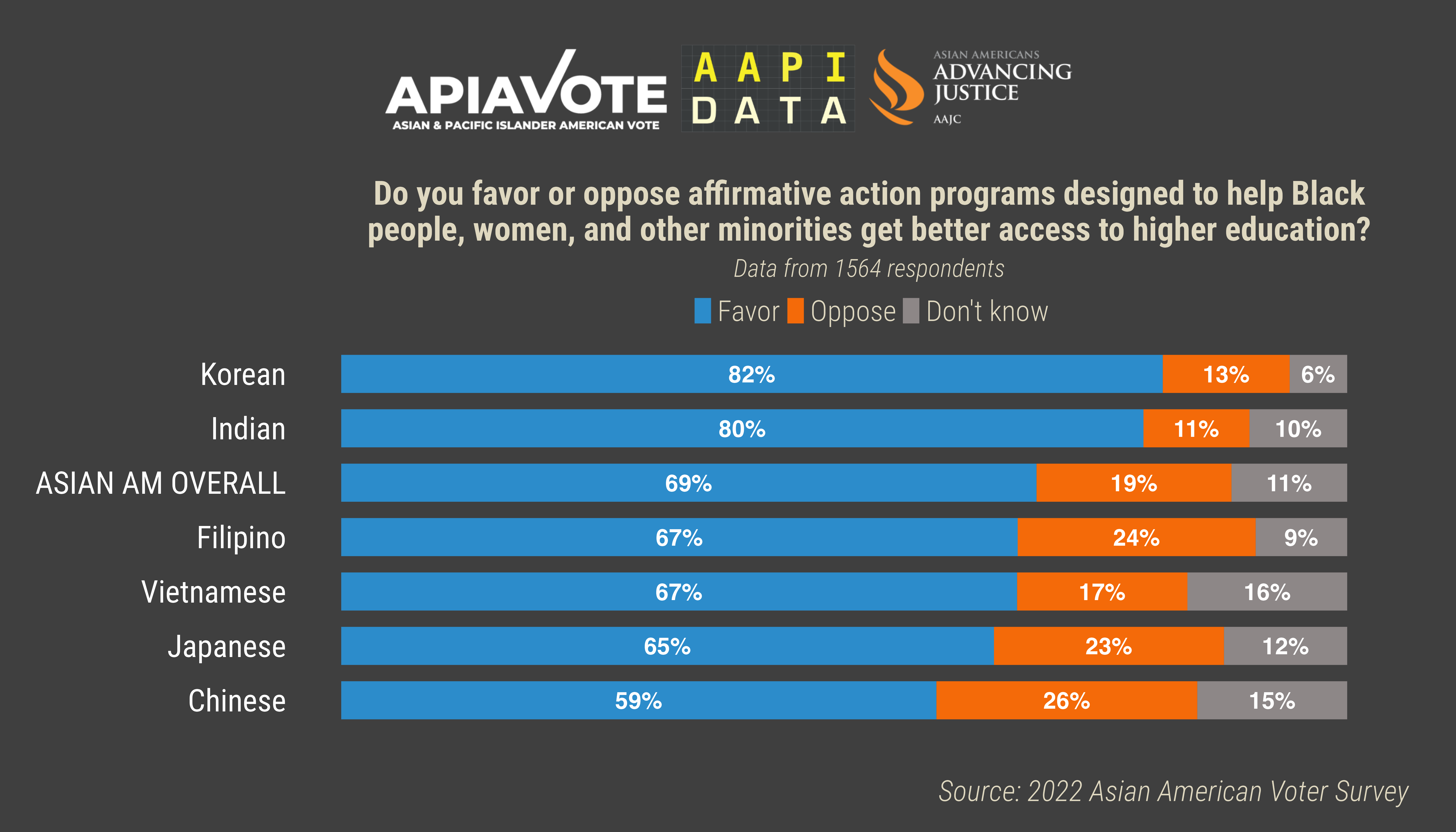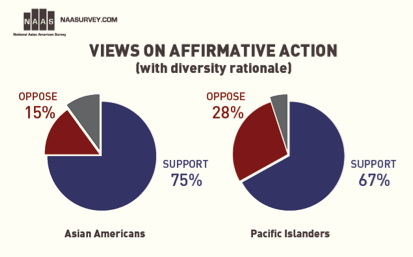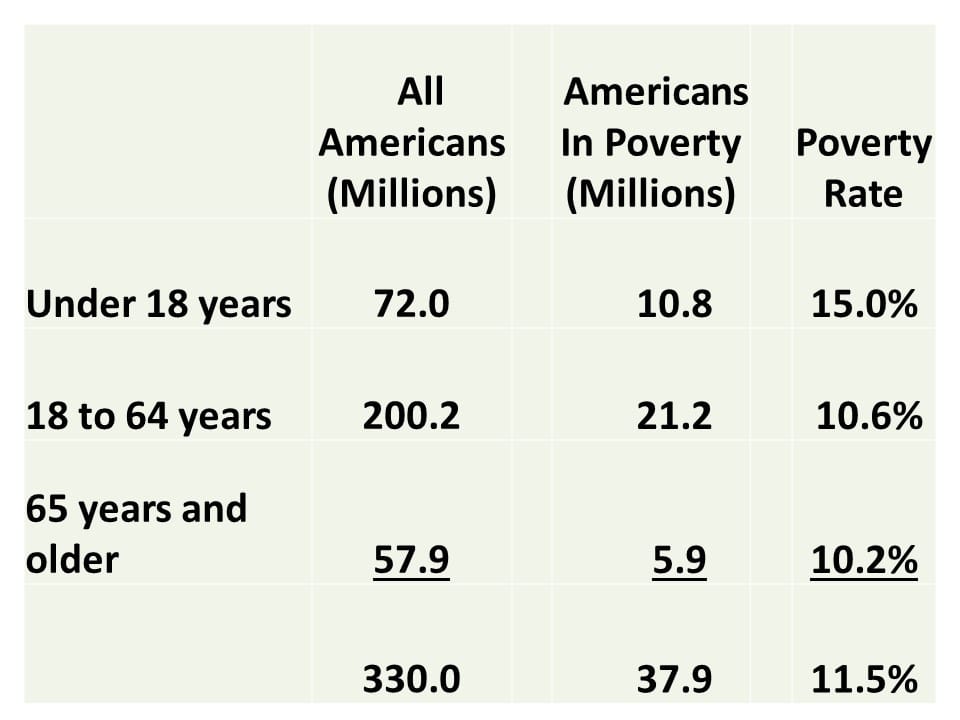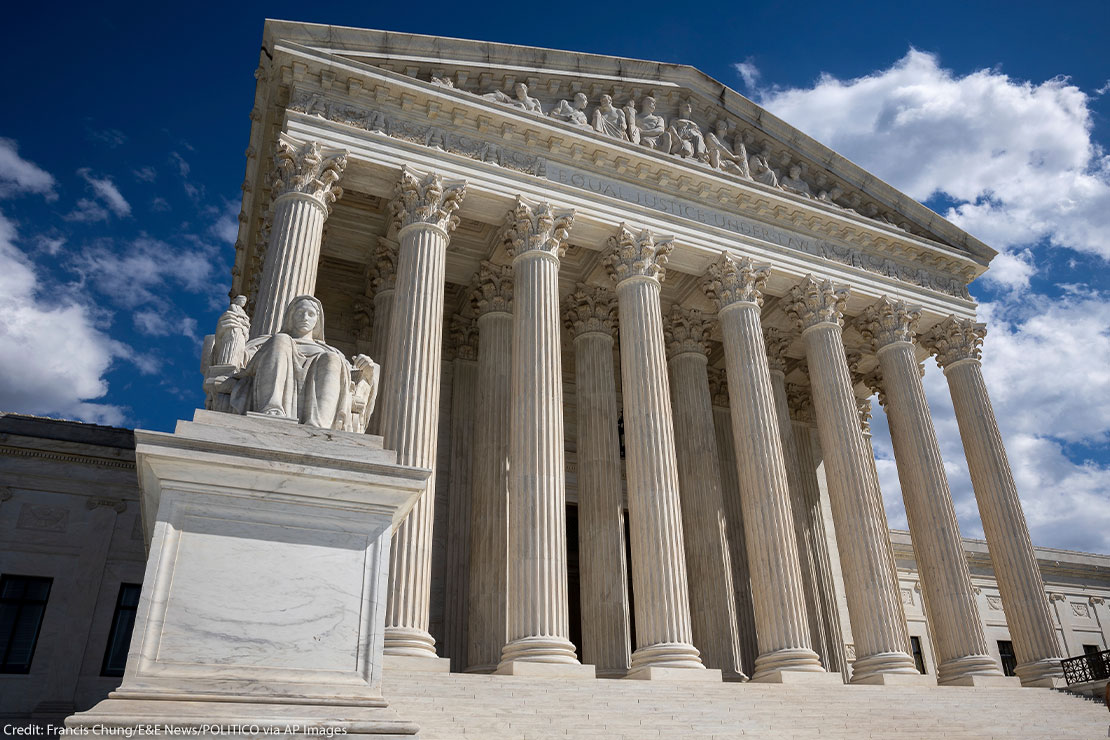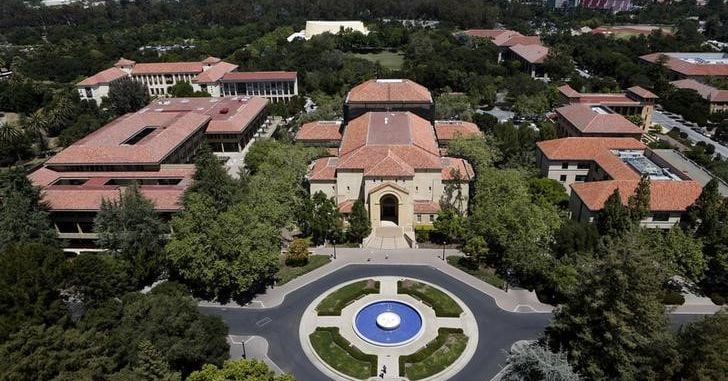LOL, what??? This entire line of discussion has been about how Asian Americans have essentially been on the *wrong* end of benefiting from affirmative action, but you're positing that Asian Americans would think they're included in the "other minorities" category that is benefiting? This is 100% NOT a reasonable interpretation of that poll because it should be obvious that "other minorities" implicitly means URMs. Asian Americans (including South Asians such as myself) are usually hyperaware that they (generally speaking depending on the ethnic subgroup) either don't require affirmative action or require it very rarely wrt to educational opportunity.
Furthermore, that 70% support figure is consistent with other higher quality polls going back a decade.
View attachment 368616
June 24, 2013The U.S. Supreme Court affirmed the ability of universities to attain the educational benefits of diversity by implementing race-based affirmative action programs, but narrowly tailor

naasurvey.com
I've read this para like three times and it still doesn't parse. The part where you wrote "some folks may not like the process of using Judicial body taking over and strong-arming the policy-making process" implies that even
fewer people within the overall group of Asian Americans would support SCOTUS banning AA, but yet the SCOTUS figure is
higher than the "oppose in general" figure. It's a logical contradiction, because the group of Asian Americans who support SCOTUS banning AA has to be a
smaller subset within the
larger group of AAs who oppose it in general. 53 ≮ 49.
BTW, earlier when you were calling Justice KBJ a token, you never answered when I asked afterwards whether the Thurgood Marshall and Sandra Day O'Connor were also "tokens." Were they nominations racist and sexist, respectively?


